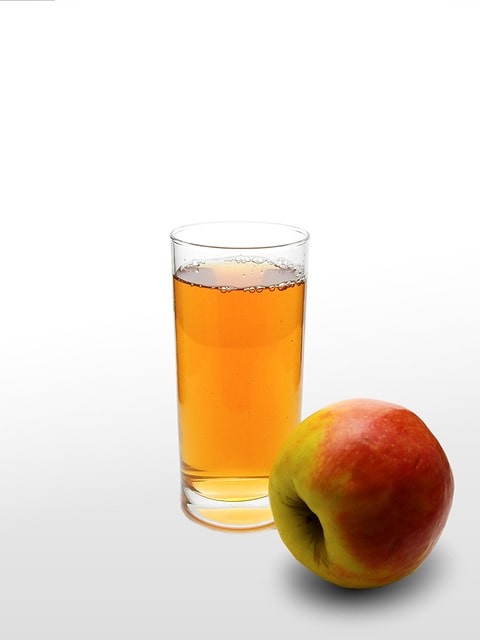The Surprising Benefits of Apple Cider Vinegar as a Mouth Rinse
Apple cider vinegar has been hailed as a wonder concoction, lauded for its various health benefits. It has been recommended for weight loss, hailed for its ability to control blood sugar levels, and even suggested as a skin-care remedy. But did you know that this humble pantry staple could also revolutionize your oral health routine? Yes, apple cider vinegar as a mouth rinse might sound surprising, but it could well be the secret ingredient for a cleaner, healthier mouth.
What is Apple Cider Vinegar?
Before we dive into the oral health applications, let’s take a moment to understand what apple cider vinegar (ACV) really is. It’s made through the process of fermenting crushed apples. This produces natural enzymes and rich nutrients, constructed mainly of acetic acid which gives it its potent sour taste.
Composition of Apple Cider Vinegar
*Acetic Acid*: The primary component which has antimicrobial properties. *Trace Chemicals and Nutrients*: Includes potassium, amino acids, and antioxidants.
The Oral Health Wonders of Apple Cider Vinegar Mouth Rinse
Navigating the buzz around health remedies can be tricky—what is actually beneficial, and what is simply an old wives’ tale? It turns out that when it comes to apple cider vinegar, science does support some surprising oral health benefits.
Antibacterial Properties
ACV contains natural antibacterial properties, which can help to combat the bacteria in the mouth that lead to plaque and halitosis (bad breath).
Teeth Whitening
While not a substitute for brushing or professional dental care, the anecdotal claims suggest a possible mild whitening effect from the acidic properties of ACV, helping to remove stains.
Balancing pH Levels
ACV can help neutralize the mouth’s pH balance, preventing an overly acidic environment which can lead to tooth decay and cavities.
Precautions
- Pronounced acidity can erode tooth enamel over time, so it must be diluted.
- Manufacturing variance can affect the quality and concentration.
How to Use Apple Cider Vinegar as a Mouth Rinse
Adding an apple cider vinegar rinse to your oral care routine can be quite straightforward. However, doing it correctly is crucial to reap the benefits while avoiding potential harm to your teeth and gums.
Step-by-Step Guide
Dilute one part of apple cider vinegar with two parts of water. Sip a small amount and swish it around your mouth for around 30 seconds to one minute. Be sure to spit it out—do not swallow. Rinse your mouth with plain water immediately after to remove any residual acid. Repeat this routine up to once daily, ideally before brushing your teeth in the morning.
Essential Tips
- Do not use apple cider vinegar undiluted.
- Don’t rinse more than once a day, to minimize acid exposure.
- Wait for an hour after the rinse before you brush your teeth to prevent enamel erosion.
- If daily use causes sensitivity or discomfort, reduce the frequency or discontinue use.
Debunking Myths: The Science Vs. The Claims
No discussion about the efficacy of natural remedies would be complete without separating fact from fiction. With ACV, there’s plenty of both to consider.
Scientifically-Supported Facts
- Studies provide some evidence for the antibacterial effects of ACV against oral pathogens.
- Helps with bad breath due to its ability to fight bacteria.
Frequently Debated Claims
- While some users report tooth whitening, no concrete studies support ACV as a replacement for standard whitening treatments.
- ACV’s ability to remedy severe dental issues, such as gum disease, lacks thorough research.
Real People, Real Results: Testimonials
Personal testimonials can often add a rich layer of understanding about how a remedy operates in the day-to-day use.
Positive Experiences
- Many users report fresher breath throughout the day.
- Some experience improvements in overall oral cleanliness.
Cautionary Tales
- Reports of enamel erosion remind us of the necessity of proper dilution.
- Testimonials include instances of gum irritation when used too frequently or undiluted.
The Double-Edged Sword: Benefits with Caution
Like many natural solutions, apple cider vinegar as a mouth rinse is a double-edged sword, promising potential benefits along with some pertinent risks.
Guidelines For Safe Use
- Always dilute ACV with water before use.
- Keep an eye out for any new tooth sensitivity or discomfort.
- It’s always best to consult with a dentist or healthcare professional before integrating it as a regular part of your health regimen.
FAQs About Apple Cider Vinegar Mouth Rinse
Whenever a non-traditional remedy gains traction, questions inevitably follow. Let’s address some common queries around using ACV in oral care.
- Q: Will ACV cure tooth infections? A: ACV might possess antibacterial properties, but it is not a substitute for treatment from a dental professional for tooth infections.
- Q: How often should you use an ACV mouth rinse? A: Most recommendations suggest that once daily is sufficient and that increasing the frequency could lead to adverse effects.
- Q: Can you brush your teeth immediately after an ACV rinse? A: It’s advisable to wait for at least 30 minutes to an hour. ACV temporarily softens the enamel, and brushing too soon could cause damage.
- Q: Does it matter what type of apple cider vinegar is used? A: Organic, unfiltered, and unpasteurized apple cider vinegar is preferred for the most benefits as it contains the “mother,” accumulations of beneficial enzymes and bacteria.
Parting Words
There’s clearly a lot to ruminate on when considering adding an apple cider vinegar mouth rinse to your oral care routine. As a natural alternative, it offers some unique advantages, but it’s important to use it mindfully and with proper precaution. resultList
Remember that personal health practices, especially those that are unconventional, always demand a careful study of the evidence and a check with healthcare professionals. Apple cider vinegar might just be your mouth’s new best friend, or it might not suit you—weighing up your own needs and conditions will go a long way in making the right choice.

